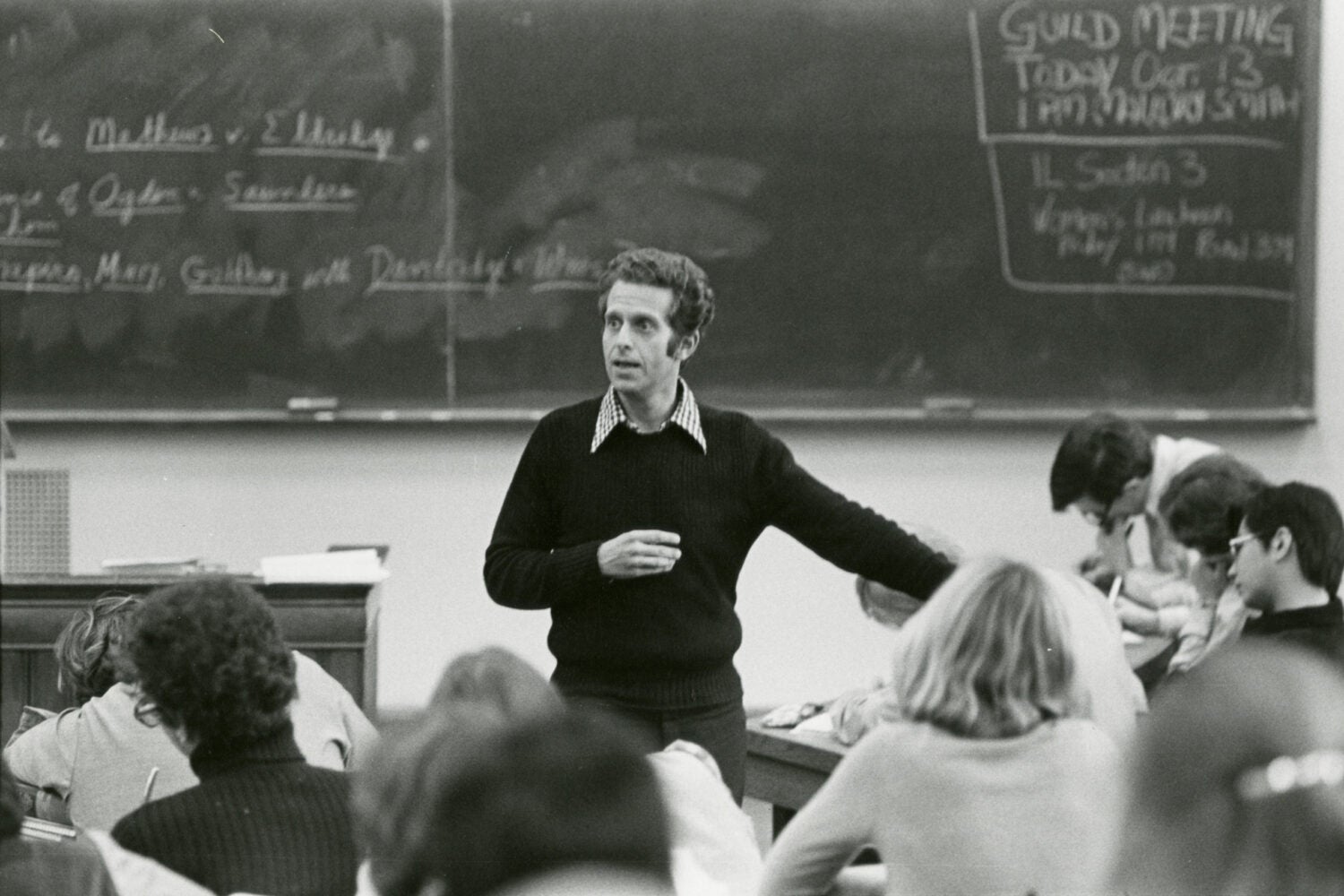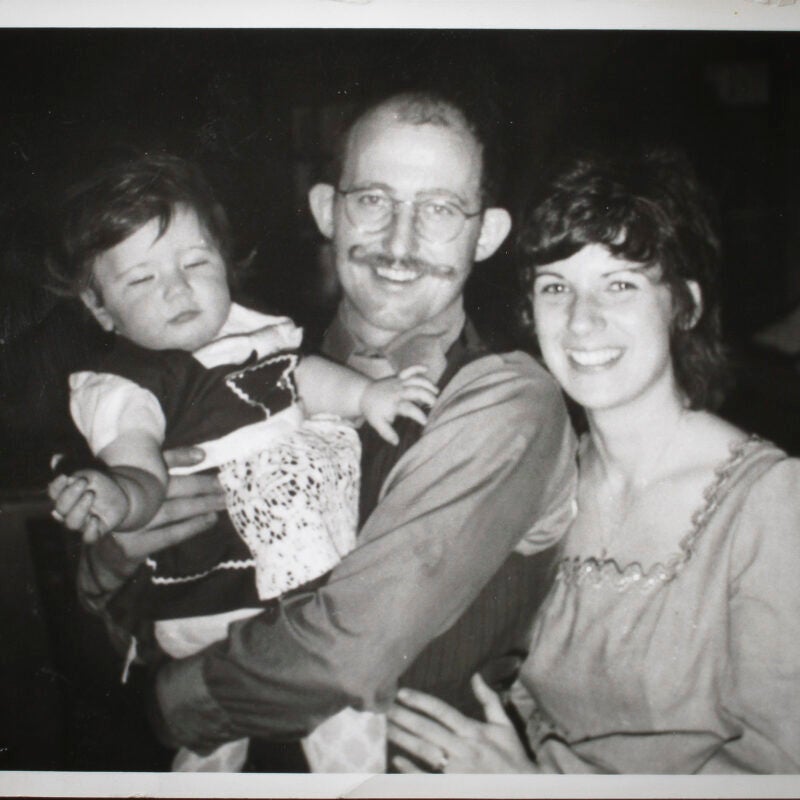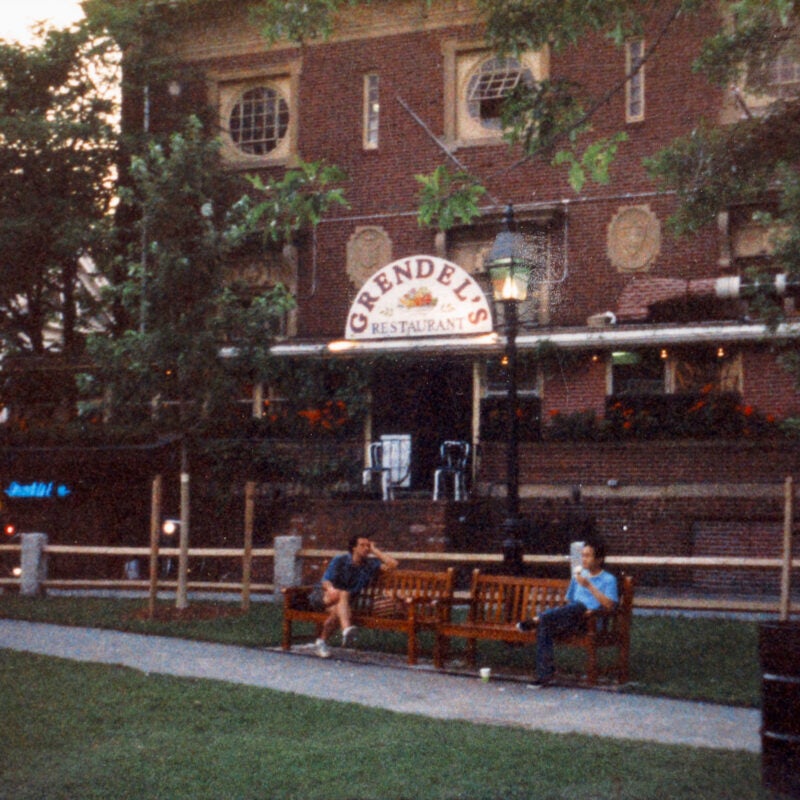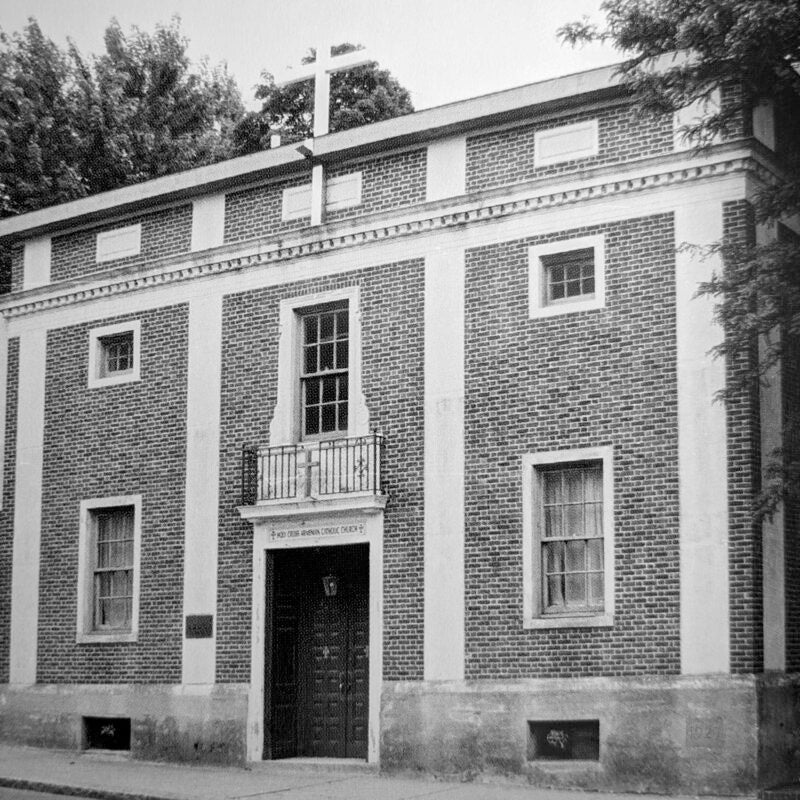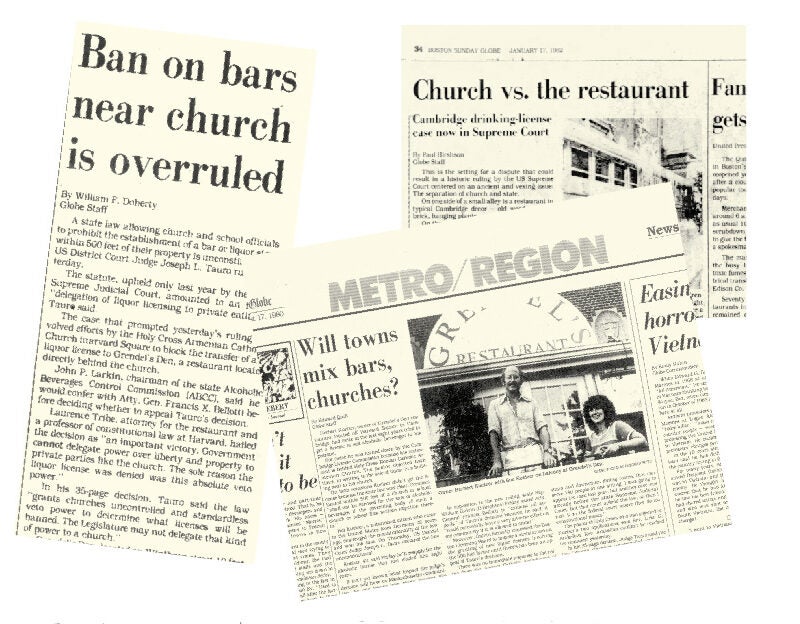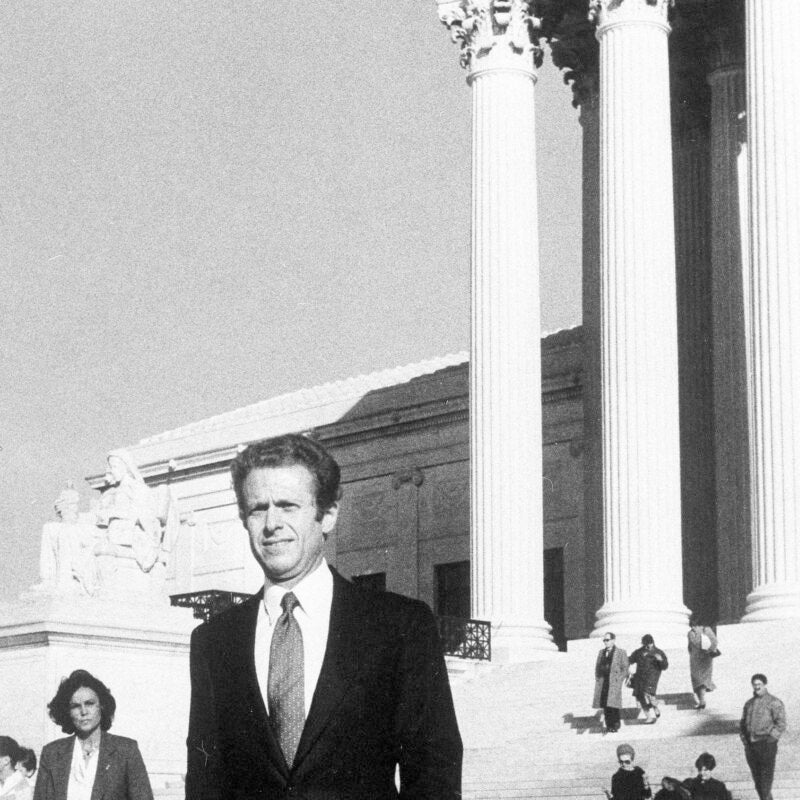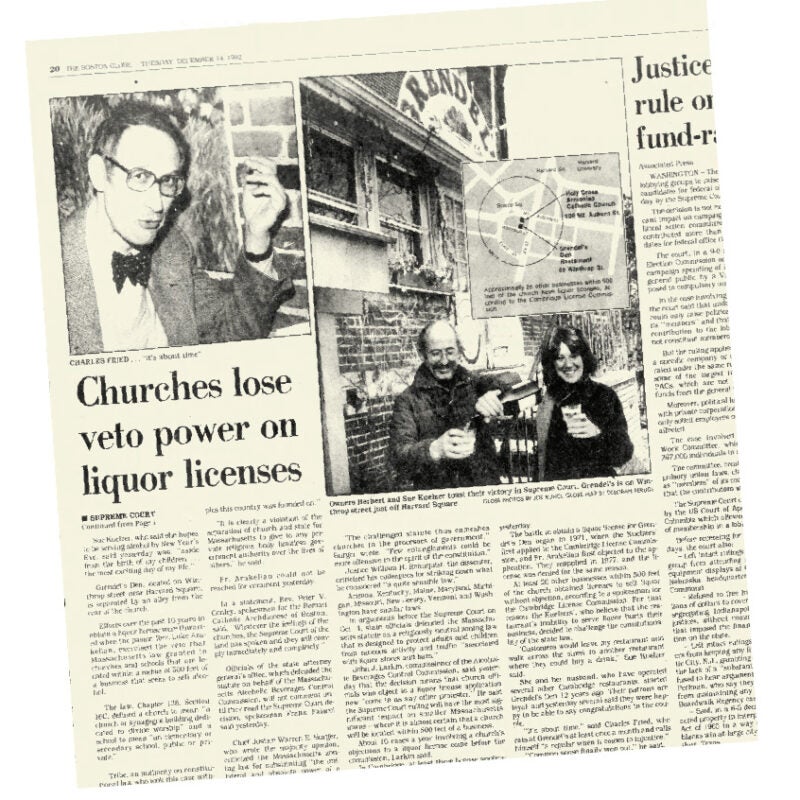In the early 1980s, Harvard Law School Professor Laurence Tribe ’66 was writing the first edition of his treatise on the American Constitution and teaching a course on the topic. During a session focused on religious freedom, Tribe had just made the point that in our system of government, churches cannot wield power over secular life, when a student raised his hand and asked: “Professor Tribe, if that’s true, why can’t I get a beer with my lunch at Grendel’s Den?”
The answer — which centered on a Massachusetts state law that allowed church officials to veto the sale of alcohol within 500 feet of their property — led Tribe, with Harvard Law colleagues Stephen Breyer ’64, now Byrne Professor of Administrative Law and Process, and David Rosenberg, now Lee S. Kreindler Professor of Law, Emeritus, to file a legal challenge against the state, which ultimately resulted in a landmark Supreme Court decision, Larkin v. Grendel’s Den, Inc. The challenge successfully changed laws in nine states and paved the way for the restaurant Grendel’s Den — a Harvard Square institution — to finally, in 1983, obtain a license to sell alcoholic beverages, which it still does to this day.
Forty years later, reflecting on the continued importance of the case, Tribe, now the Carl M. Loeb University Professor, Emeritus, says: “The principle that churches should not be able to wield governmental power is an important part of the whole idea of self-government. … At a time when democracy is under such threat, no principle could be more basic than that.”
-
![A black and white photo of a man and woman holding child]()
Herbert Kuelzer, a Bavarian immigrant, opened Grendel’s Den restaurant in 1971 →
-
![A photo of the front of a brick building with the sign Grendel's Den]()
but soon realized his business couldn’t get a liquor license →
-
![Black and white photo of a brick church]()
without permission from the church next door (the Holy Cross Armenian Catholic Church). →
-
![Three newspaper clippings]()
Tribe’s complaint, filed on behalf
of Grendel’s Den against the Massachusetts Liquor Licensing Authority, was successful in federal district court on First Amendment grounds, then was overturned by the 1st Circuit Court of Appeals, before being reversed en banc. The state of Massachusetts then decided to take the case before the U.S. Supreme Court → -
![A black and white photo of a man in front of the U.S. Supreme Court]()
Because “the Court was quite enamored of originalism,” Tribe said, he focused on the founding of the Republic in his oral argument, pointing to that period as a time when churches were expressly prohibited from exercising governmental power. →
-
![Newspaper clipping]()
On Dec. 13, 1982, the case was decided 8-1 (with Justice William Rehnquist dissenting), ruling that it was unconstitutional to deny Grendel’s Den a liquor license by exercising a religious veto.
Credits:
Far left: Barry Donahue/HLS Historical & Special Collections; Top left to right: Courtesy Kari Kuelzer/Grendel’s Den (2); Cambridge Historical Commission; Bottom center: AP Photo; Newspaper clippings from the Boston Globe: left (Aug. 15, 1980, Aug. 17, 1980, Jan. 17, 1982); Far right (Dec. 14, 1982).
